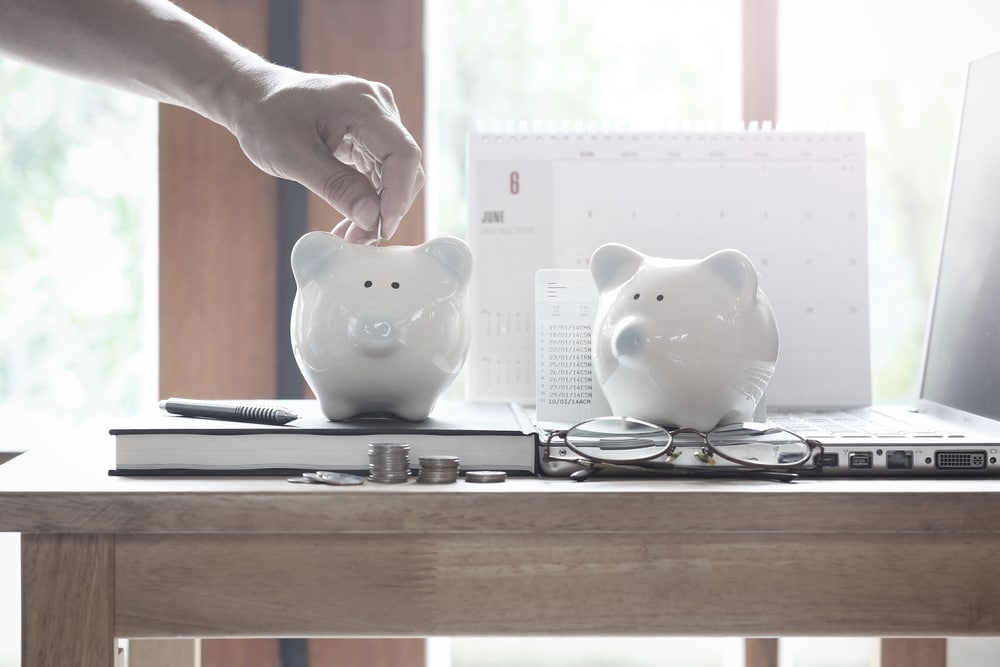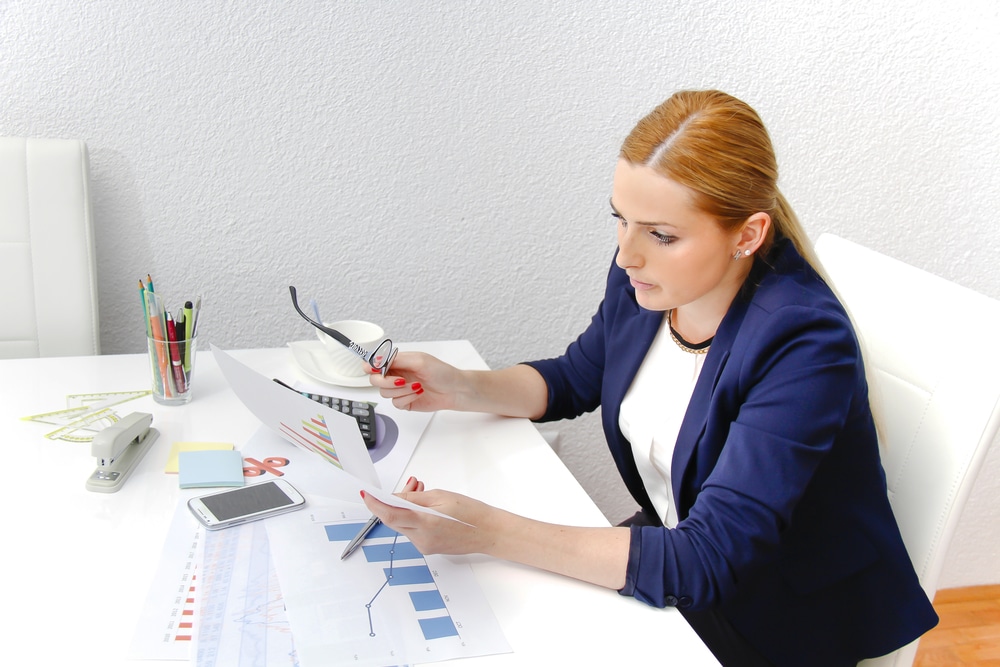Jasmine Birtles
Your money-making expert. Financial journalist, TV and radio personality.

The end of the financial year – 5th April – is fast approaching, which also means the start of a new tax year and things you need to do before tax day.
So, there are some simple things to do before 5th April to save yourself some serious money before the next tax year begins.
Do you have a spouse or civil partner who’s in a lower tax band than you (or pays no tax at all)? If so, transferring any savings into their name could cut your income tax bill, as the interest on the savings will be subject to his or her tax rate and personal allowance.
Don’t forget your Capital Gains Tax allowance (CGT). CGT is paid when you sell assets like shares or a buy-to-let property. You can make up to £12,000 this year on these kinds of sales before you have to start paying tax on them. So, if you were planning on selling some shares and keeping the money it could be worth doing it in this tax year rather than next. Capital Gains on property sales are taxable at 18% as a basic rate taxpayer, and at 28% as a higher rate payer.
Also, if possible, own and share these assets with your spouse so that both of your allowances can be utilised.

An ISA is a savings and investment account that pays out interest or grows (if it is a stocks and shares type), and you don’t pay tax on any of the gains generated each tax-year. They still remain one of the best ways to save money, avoid tax (legally of course!) and grow your wealth.
Tax-free savings are not to be sniffed at so use up your allowance for this tax year before 6 April – remember if you don’t use it, you lose it!
You can invest up to £20,000 into an ISA this tax year, in any combination of cash and stocks and shares, £40,000 per couple.
We think you should put some (or indeed all) of that money in a stocks and shares ISA.
Also check any old ISA accounts to see if you can get a better rate on them. It’s likely that your old Cash ISAs are doing pretty badly so consider moving to an equities (stocks and shares) ISA if you have at least five years to go before you want to take the money out.
You can find out about transferring money from old ISAs here.
Putting aside some money for your kids?
Remember you can now get Junior ISAs for your children. Anyone can put money into it but the limit is £4,368 in total per tax year.
Like the main ISA allowance, this can’t be carried over to the next tax year. Put as much as you can in before 5th April. You can add any further lump sums from 6th April to start next year’s allowance.
If you want to put money aside for your children or grandchildren, a Junior ISA is one of the simplest and most tax-efficient ways to do this.
Read our guide to Junior ISAs here.
It’s a small point but can make a big difference to your finances.
it’s worth making sure that you have the right tax code before the end of the tax year. It’s possible that you have been paying too much or too little income tax so you either need to get money back or pay more in before the taxman catches up with you!
You can find your tax code on your P45, the PAYE Coding Notice sent by HMRC or on your wage slip.
The most common tax codes are formed of several numbers and a letter, for example 1250L or K497.
Find out more about checking your tax code at the Gov.uk website here.
Before 5 April make sure you’ve given some money away.
You can give away gifts worth up to £3,000 in total in each tax year to your family members. These gifts will be exempt from Inheritance Tax (IHT) when you die. You can also give up to £3,000 in respect of the previous year if this allowance was not used, meaning a couple could give away up to £12,000 now and a further £6,000 on 6th April, potentially saving £7,200 of IHT over two tax years.
Also, you can give up to £5,000 to your child if they get married or enter into a civil partnership (£2,500 to your grandchild) and that is exempt from IHT.
You can make small gifts up to the value of £250 to as many other individuals as you like in any one tax year. So, as the tax year draws to a close, give money away this month to bring down the IHT your children may have to pay.
Be careful and always speak to a financial advisor, though. Giving away money could affect IHT if you die within 7 years of providing a gift. Large amounts, such as house deposits to help your children on the property ladder, may fall under this rule.
Discover various other ways to pay less tax here.
A pension is one of the most tax efficient ways to save.
If you’re a UK resident, under age 75 and not drawing your pension, the general rule is you can contribute as much as you earn to pensions this tax year, although it is capped at £40,000 per year. You can also use any unused allowances from the previous 3 tax years.
Those with “adjusted income” of £150,000 or more could see a lower, tapered annual allowance.

If you have unused annual pension allowance from the past three tax years, you might be able to use them this year and save up to £120,000 into a pension – lucky you if you have that kind of money to invest!
Your total contribution must be within 100% of your earnings to receive full tax relief. So, you can only put in £120,000 if you’ve made at least that this year in earnings before tax day.
Your non-earning spouse can have a pension that you invest in. Non-earners can make a £2,880 pension contribution each tax year and the government add £720, (that tax that would have been paid on this money) even if the individual pays no tax.
At retirement from age 55, 25% of the value of the pension fund can be taken as tax-free cash, with the balance being taxable.
Also, if further withdrawals fall within your spouse’s personal allowance each year, (under £12,500) these will also be tax-free.

Every year you can sell assets (like a property, shares, antiques etc) and make some profit on them before you have to pay tax. This is your Capital Gains allowance.
After that you have to start paying CGT (Capital Gains Tax). This tax year the allowance is £12,000. Using your CGT allowance saves up to 20% capital gains tax on profit from shares or funds. You’ll need to fill out a self assessment between the next tax day and January 31st the following year to use your allowance.
If you’re a sophisticated investor (and you are of course!), and you pay tax, you could consider investing in a VCT (Venture Capital Trust), before tax day because you get 30% tax relief on it.
However, be aware that these are very risky and many of them don’t give you a decent return, even when you factor in the lovely tax saving.
VCTs invest in some of the most dynamic, entrepreneurial, high growth companies and are long term speculative investments. So they’re interesting but ‘speculative’. You need to know what you’re doing with these if you’re going to make any sensible money.
Each tax-year you can receive up to £2,000 in dividends completely tax-free. The dividends voucher will need to be issued by 5th April at the latest and should be paid out in accordance to the shareholding held at the business.
View the Dolan Contractor Group contractor guide to dividends here.

Pension is a good way to put some money aside for future and employer and government also contribute.
Useful, informative article.